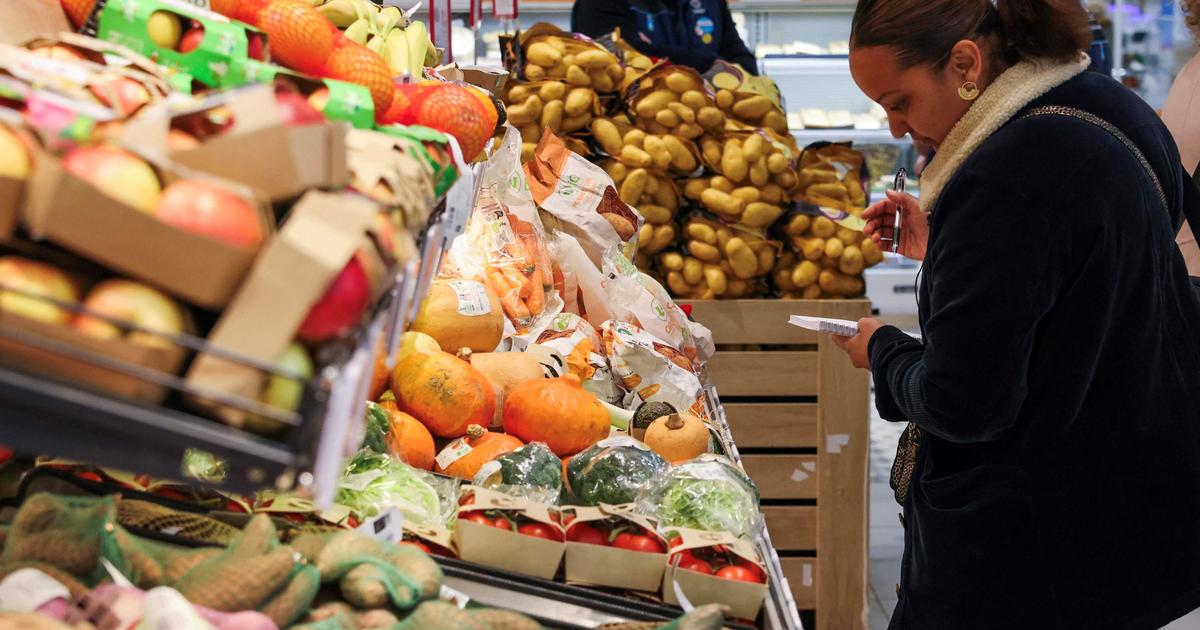Christmas is here!
Family gatherings that take place around a table.
Varied, different and abundant menus that, after the celebrations, swell household refrigerators for days and, finally, end up accumulating inside garbage cans.
Within the framework of the More Food, Less Waste
Strategy
To reduce food waste in homes, the Ministry of Agriculture, Fisheries and Food (MAPA) launched in 2014 the quantification panel that collects in detail the amounts of food that Spaniards throw away.
The Report on Food Waste in Households 2021 states that a total of 1,245.86 million kilos or liters are wasted, 8.6% less than in 2020. If adjusted by household, on average, it would be about 70 kilos or liters of food and drinks during that same year.
These figures are too high and, in the opinion of Eva González, spokesperson for the Culture of Sustainability of the Ecodes organization, cause numerous environmental, social and economic impacts: "Furthermore, we only have eight years left to achieve the goal set out in the 2030 Agenda in its SDG 12.3: Halve waste in all links of the food chain.
We must increase the actions so that it is possible to achieve it”.
More information
"And tomorrow, what?": more family time to combat the overstimulation of activities at Christmas
The waste of this volume of food is explained, in part, by the lack of information and training, together with the invisibility of the consequences.
Carlos Ballesteros García, a professor at the Comillas Pontifical University, says that throwing away the leftovers is an act that ends in itself: once I cover the garbage can, the problem disappears from my sight: “What happens next, including the people who can rummage through my waste and feed on it are not something visible to my eyes.
Leftovers are not seen as something useful, but as food that can no longer be used.
It is easier to get rid of them than to think about how to use them.
Making the situation visible, making it present, making the remains tangible is a first step in attacking the problem”.
For his part, Fernando Bonete Vizcaíno, director of the Master's Degree in Circular Economy and Sustainable Development at the CEU San Pablo University, provides a second vision of the subject.
This expert assures that not enough value is given to the food we consume because in Spain it is not a scarce commodity: “We can afford it, and in a certain way we have plenty of it.
As in the case of clothes, we never ask ourselves the question: do I really need it?
The administrations implement policies to reduce this type of waste and raise awareness among the population, but as specialists in this field indicate, they are long-term.
Ballesteros lists four “theoretical” strategies to achieve the long-awaited social change in the face of food waste:
Make tangible the bad consequences of the behavior that we want to avoid: This happens by explaining and making visible the waste and making known what happens after throwing food in the trash.
Make the population aware of the benefits of the “new” conduct.
Work on the community dimension: what you waste harms us all.
Work on self-esteem and the "you can", "you did it", with positive self-reinforcement of the behaviors that are pursued.
Facing these Christmas holidays, Fernando Bonete proposes to control waste at home from the moment of purchases.
“Plan meals well, especially at times of celebration when the daily routine is lost.
Changing the shopping list, the food and the quantities is essential.
This helps to banish the idea that there must always be everything in the fridge.
If something is needed, he goes and buys it in a timely manner”.
Families play an essential role in this awareness-raising effort, becoming a benchmark for their children through education.
Likewise, these holidays are a privileged moment to educate in healthy habits.
González insists that mothers and fathers are the main example and must use that position to acquire sustainable and healthy eating and consumption guidelines and habits: “We must not forget that we can be a good model or the worst of models;
we must be aware and assume our responsibility as references for the little ones”.
To help households collaborate in these upcoming holidays to end food waste, the Ecodes head of Sustainability Culture offers some tips to put into practice in the coming days and maintain continuously throughout the rest of the year:
Prepare a weekly menu with your children based on local and seasonal vegetables and fruits.
Plan the purchase based on the food that is needed for the menu and always under sustainable criteria.
You can make the shopping list together.
In the supermarket, teach them not to be tempted by the offers, that it is important to buy only what we need.
Back home, organize your fridge and tell them how to do it: yogurts and cheeses on the top shelf;
in the central part, cooked food;
meat, poultry or fish on the lower shelves;
below, in the drawers, vegetables and vegetables;
and at the door products that do not need much cold to be preserved.
Show them where the fridge thermostat is, which has to be at +5°C.
and that of the freezer at -18 °C.
Colder temperatures, in addition to being useless for preserving food well, increase energy consumption: 5% more consumption for each degree less.
Teach them the difference between best before date and expiration date.
When the expiration date arrives, we cannot eat that product.
But once the best before date expires, the food can be eaten (although it can no longer be marketed).
Cook with them and prepare the right portions.
With leftovers, practice waste cooking.
Discover with your children how to use leftover food, with your creativity or with the help of the recipes that you will find on the internet.
You can follow Mamas & Papas on
,
or sign up here to receive
our biweekly newsletter
.

/cloudfront-eu-central-1.images.arcpublishing.com/prisa/4YAYMCPUKFHUPOT3AOKXJKEIAY.jpg)






/cloudfront-eu-central-1.images.arcpublishing.com/prisa/7QU636FY4BGCHIYJHGSNPBQJWI.jpg)
